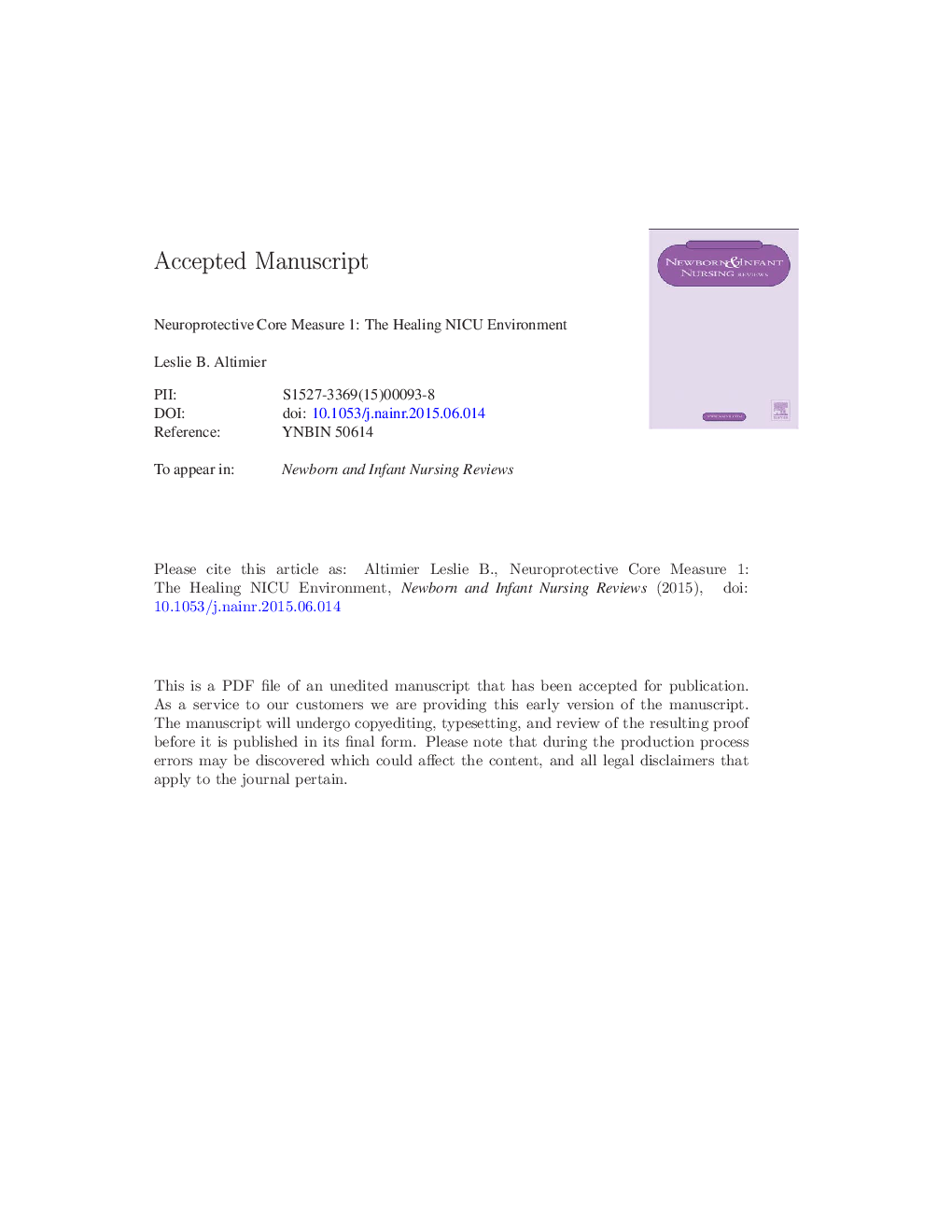| Article ID | Journal | Published Year | Pages | File Type |
|---|---|---|---|---|
| 5870830 | Newborn and Infant Nursing Reviews | 2015 | 27 Pages |
Abstract
The management of premature infants has advanced over the past three decades to the point that infants born as early as 22 weeks' gestation now have a chance of survival in part due to technologic advances. This progress comes with great costs as premature infants are in the NICU for many weeks or months, and many have impaired short and long-term outcomes. These tiny patients are at a high risk for a variety of developmental problems including cognitive deficits, poor academic achievement, and behavior disorders. More focus is now directed to preterm and low-birth weight infants who have mental health issues such as attention-deficit and attention-deficit-hyperactive disorders, anxiety disorders, and emotional disorders. A significant proportion of prematurely born children are now showing behaviors consistent with autism. Although the cause of these findings remain unclear, it is thought that early environmental influences on the brain during critically sensitive developmental periods account for these adverse outcomes. When an infant is born prematurely, the still-developing brain and sensory systems are affected by the continuous interplay of stimuli in the NICU. It is essential that a healing environment is created with background neurosensory stimulation kept at a level such that sensory systems can discriminate and accommodate meaningful signals or stimulation.
Related Topics
Health Sciences
Medicine and Dentistry
Perinatology, Pediatrics and Child Health
Authors
Leslie B. DNP, MSN, RNC, NE-BC,
